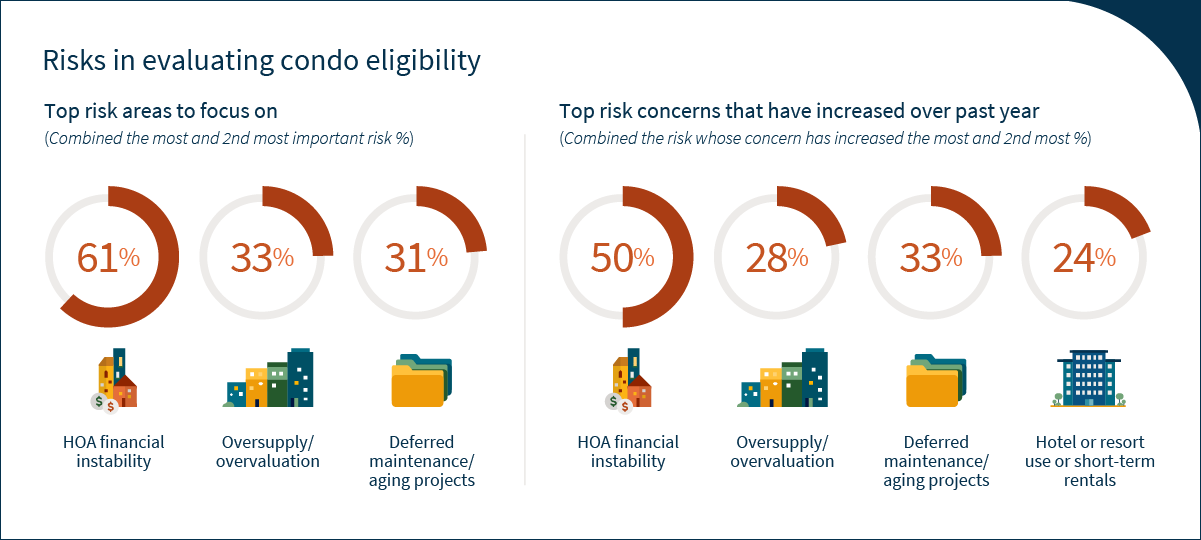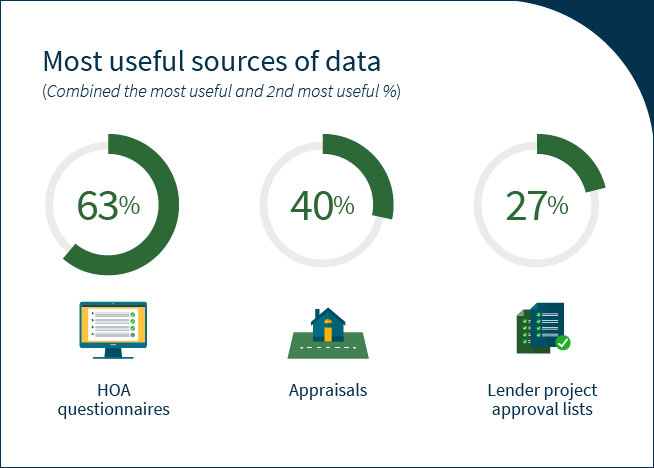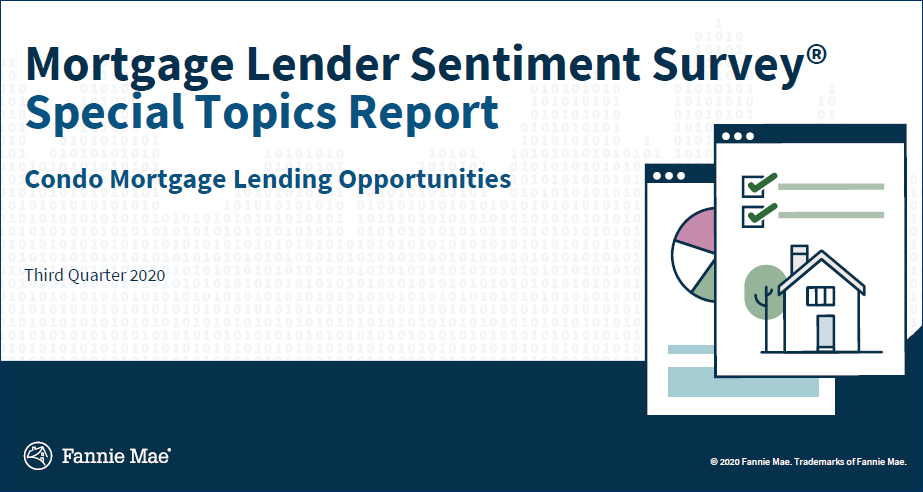Lenders Expect Stable Levels of Condo Lending and Identify Opportunities for Industry Improvement
Since the Great Recession, the U.S. housing market has faced a significant supply shortage of both new and existing homes for sale. Condos can play an important role in narrowing the supply gap for affordable housing options, and they often provide an attractive alternative for homeowners seeking to downsize. While condos represent about 8-10% of the mortgage market, they play a larger role in many larger urban areas. Condos also present unique risks, as condo owners share financial responsibility for the operation and maintenance of the common areas and shared amenities. The complexities of underwriting condo project eligibility may also increase the costs and time it takes lenders to approve and close these mortgages.1
In early August, Fannie Mae surveyed over 200 senior mortgage executives, via the Mortgage Lender Sentiment Survey®, to better understand lender perspectives on market trends and to identify opportunities to streamline or enhance policy and process requirements in order to more effectively and efficiently manage condo project risks.
The survey results indicated that most lenders are active in condo lending, with 86 percent saying that they currently originate single-family condo mortgages. In addition, lenders originating condo mortgages found the market relatively active, with 71 percent expecting their share of condo loans – as a percentage of total loan volume – to remain about the same. Approximately 40 percent reported having dedicated condo project-approval teams.
When asked how to improve the effectiveness of condo underwriting processes for risk management and borrower sustainability, lenders reported that secondary-market investors should pay more attention to homeowner association (HOA) financial instability (60 percent), oversupply or overvaluation (33 percent), and deferred maintenance (31 percent) as the top risk factors. When asked to identify the risk factors for which their concerns have increased the most over the past year, 50 percent cited HOA financial instability, followed by deferred maintenance (33 percent), oversupply or overvaluation (28 percent), and hotel/resort use2 or short-term rentals (24 percent).
Lenders also noted that condo underwriting involves gathering data from many different sources, further complicating the process. Lenders said that they tend to rely on what they believe to be the most useful data sources: HOA questionnaires3 , appraisals, and lender project approval lists.
Despite these challenges, the survey showed that lenders placed the overall loan origination process, borrower income validation, appraisal, and loss mitigation workout as the top opportunity areas for process improvement, ahead of condo review.
Like many other markets, the condo market is active, and its participants rely on a wide variety of information sources to guide decision making. With the majority of lenders reporting that they plan to maintain a consistent share of condo lending as percentage of total origination volume, any improvements to information-gathering and data evaluation should serve both lenders and borrowers well. This is especially critical for condo projects with characteristics that lenders frequently associate with increased risk, such as potential financial instability, oversupply or overvaluation, and deferred maintenance (or future functional viability). Through the survey, lenders reported that they welcome change that improves the review process and further enhances the evaluation of their risk position, as innovation continues to accelerate enhancements for other prioritized loan origination and servicing processes.
To learn more, read our Fannie Mae Mortgage Lender Sentiment Survey Special Topic Report, "Condo Mortgage Lending Opportunities."
Detailed research report (by request)
Jodi Horne
Advisor
Single-Family Collateral Risk Management
October 20, 2020
The author thanks Li-Ning Huang, Elizabeth Myers, Kimberly Dawson, Jake Williamson, Cyndi Danko, Tomas Ducaud, Michael Lacour-Little, Jaclene Begley, and Chris Purdy for valuable contributions in the design of the research creation and creation of this commentary. Of course, all errors and omissions remain the responsibility of the author.
Opinions, analyses, estimates, forecasts and other views of Fannie Mae’s Economic & Strategic Research (ESR) group or survey respondents reflected in this commentary should not be construed as indicating Fannie Mae's business prospects or expected results, are based on a number of assumptions, and are subject to change without notice. How this information affects Fannie Mae will depend on many factors. Changes in the assumptions or the information underlying these views could produce materially different results. The analyses, opinions, estimates, forecasts, and other views published by the ESR group represent the views of that group or survey respondents as of the date indicated and do not necessarily represent the views of Fannie Mae or its management.
1 CoreLogic "The State of Condominium Lending" March 2019, https://www.corelogic.com/blog/2019/05/the-state-of-condominium-lending.aspx.
In the current study, 14 percent of lenders surveyed say they do not originate condo loans. They pointed to the risk and complexity of condo loan origination and the lack of demand in the market they serve as the key reasons for them not to originate condo mortgage loans.
2 Condo projects that operate as hotels or hotel-type business, often known as "condotels," are not eligible project types under Fannie Mae policy.
3 Government-sponsored enterprises (GSEs) have developed standardized Condo Project Questionnaire forms (1076/1077) to help lenders collect data to determine condo project eligibility, https://singlefamily.fanniemae.com/originating-underwriting/condo-co-op-and-pud-eligibility.




